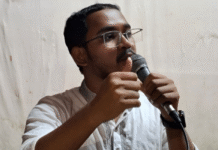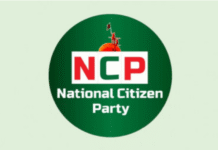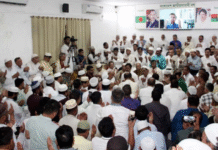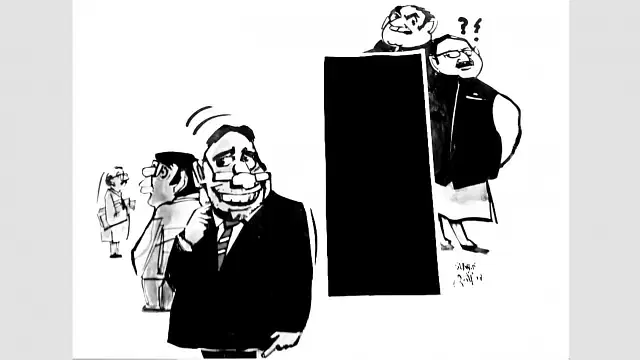
Until now I thought deputy commissioners supervise and coordinate government work at the district level. And Bangladesh is a democratic republic. But I wonder why the deputy commissioner is said to be an ‘administrator’.
The million-dollar question is, where are the MPs who are so adept at poking their noses into almost everything?
MPs hold the highest position among the people’s representatives in the country. There’s no place where they do not interfere. Laws have been made to facilitate this. They pop up everywhere, in the governing bodies of schools and colleges, as advisors of upazilas and districts, in committees of mosques and other religious places and more. It’s as if democracy will lose its lustre if they do not oversee everything personally.
Much development work is being carried out in the country and the MPs have made their presence felt there as well. Many government organisations are in charge of implementing the projects. They have separate allocations for this. Why should the MPs lag behind? This is why a special system was devised for them – the one-time allocation. They will decide, where and how the money will be spent. This is like a penicillin to keep everything alright in the electoral constituencies. I’ve heard many deputy commissioners and DGs can hardly sleep at night with the MPs’ requests pouring in.
Also Read
Govt engages 64 secretaries to supervise relief distribution
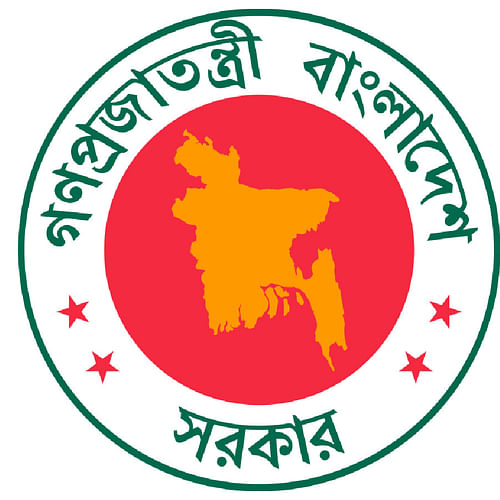
The country is fighting the coronavirus pandemic. A month has gone by. We are getting reports of irregularities and lack of coordination from everywhere. Everyone, including the ministers, MPs and DCs tell the prime minister at video conferences that everything is under control and all preparations are done. But behind the curtain its a difference scene. Nothing is going right. Many things appear in the social media. The flunkies of these powerful people try to say these are rumours, but the veracity eventually emerges.
Also Read
Zila Parishad member suspended for plundering relief
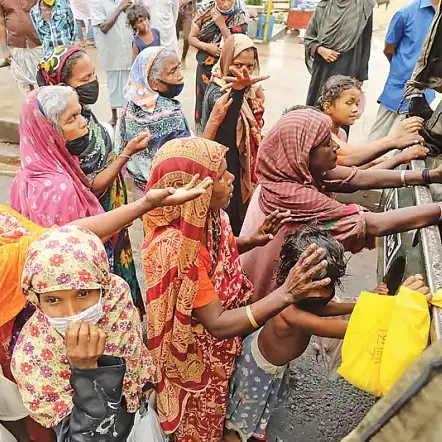
Narayanganj is placed in total lockdown since the city has turned into a hotspot of coronavirus. The Narayanganj City Corporation mayor had been requesting the government to impose curfew in the town even before it went for lockdown. The government did not pay heed to the mayor and the situation went beyond control within a few days. Who is responsible for this?
During the tenure of BNP founder Ziaur Rahman’s government, an MP or a minister would be in charge of a district. People would jest about it. It showed a lack of faith in the local administration or was a step to keep the local government under pressure. This system gained popularity. And afterwards many political parties gave charge of different districts to their leaders, terming this an ‘organisational responsibility’. The anti-Zia party also has adopted this.
Also Read
Politicisation threatens relief distribution
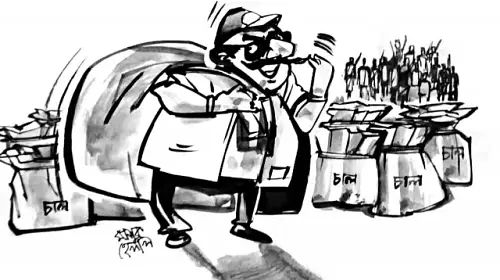
The situation is different now, like that of a wartime. We know who is the enemy but it is invisible. There is no chance to attack the enemy now. The defence system, that is the vaccine required to led the attack, will be prepared in foreign labs. We will import it when that will be available in the market. Now is the time for self-protection. We are sweating over ways to protect ourselves.
Also Read
7 more UP chairmen, 3 members suspended
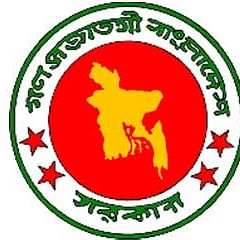
The million-dollar question is, where are the MPs who are so adept at poking their noses into almost everything? We are seeing them distributing relief material in one or two places, in photographs. But they are more interested in publicity than actual relief work. They are posing with masks.
And then the anti-climax. The prime minister Sheikh Hasina has given secretaries each the responsibility of a district. Why has she chosen secretaries despite so many MPs and ministers?
Already the term ‘rice-thief’ is a common term in the country. The few years after the liberation war was different as it was a war-torn country at that time. Scarcity was everywhere then. Prices were skyrocketing. Amid this the government started relief operations through TCB, ration shops, relief committees and gruel kitchens. But nothing seemed enough to control the situation. At that time, people staged demonstrations and chanted slogans against this. Now demonstrations and rallies are not taking place because of the lockdown but there is no end of complaints.
Probably the prime minister is not being able to rely on the traditional system. She has warned of taking tough action against corruption over relief materials. Still she has not given responsibility of the districts to any MPs or ministers. Instead she has chosen the secretaries.
We don’t know what the secretaries would do. We assume it would be easier for a secretary to hold the district and lower level administration accountable and lead them to action. It would apparently be more effective to use the administration than the political leaders.
We must try to understand why the prime minister has kept her faith in bureaucrats rather than her party’s MPs. Maybe, she has considered integrity, efficiency, capability to work quickly and accountability. Maybe this is an emergency measure. But where are the honourable members of parliament at this emergency period? Have they vanished into thin air?
We could go back 45 years ago to understand the whole scenario. What was the situation then? We could cite from the speech of Bangabandhu Sheikh Mujibur Rahman that he gave in the first meeting of BaKSAL (Bangladesh Krishak Sramik Awami League) as its chairman in Dhaka on 19 June 1975:
“I could not provide fertiliser. Of the amount I provided, 30 per cent has been stolen. Do you acknowledge that? I do. I can’t tell a lie. By telling lies I can’t remain president of the country even for a day. The amount of fertiliser I provided, at least 30 per cent was stolen for the black market. The food I provide, 20 per cent of that is being stolen. Twenty to twenty-five per cent of the goods I send to the villages is being stolen. Everything is being stolen. I don’t produce wheat, a very little we do. (Show me a market) where the wheat is not available? These are the government warehouse’s wheat. I do not sell fertiliser in open market. (But show me a market) where the fertiliser is not available? Let us discuss this matter. There shall be free and fair discussion… this political party – a very important thing. One cannot get membership of this if one wishes. Members must be chosen. It can’t be (accepted) that a man with a membership card comes and seeks a permit (dealership)…”
Over four decades have gone by. Have we changed? We have destroyed the country in the name of party allegiance. We are not being able to hide the society’s wounds. Those who are running the countries must learn to acknowledge good deeds and take the responsibility of bad deeds. Let’s see whether the secretaries can lead the nation through this crisis. I don’t want to dismiss the matter by saying ‘Rotten bureaucracy will bring no results.’
At the same time, we must not forget the question, where are the people’s representatives? Where are the MPs? Have they gone underground at this time of crisis? They flexed their power often. Why can’t we see their ‘sacred faces’ at this critical moment?
* Mohiuddin Ahmad is a writer and researcher. He can be reached at mohi2005@gmail.com
* This article has been rewritten in English by Shameem Reza


